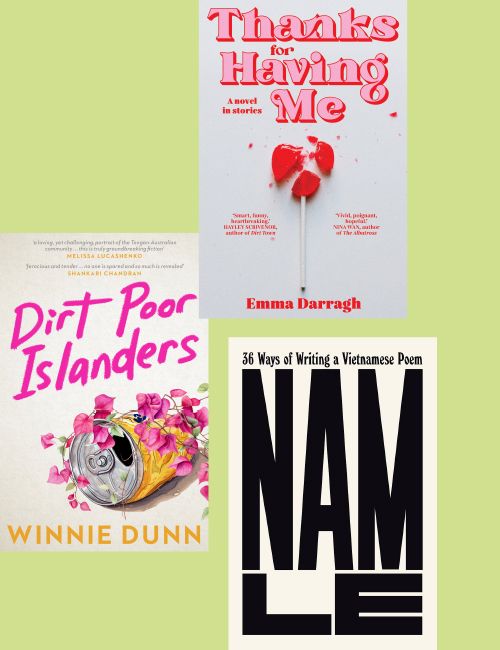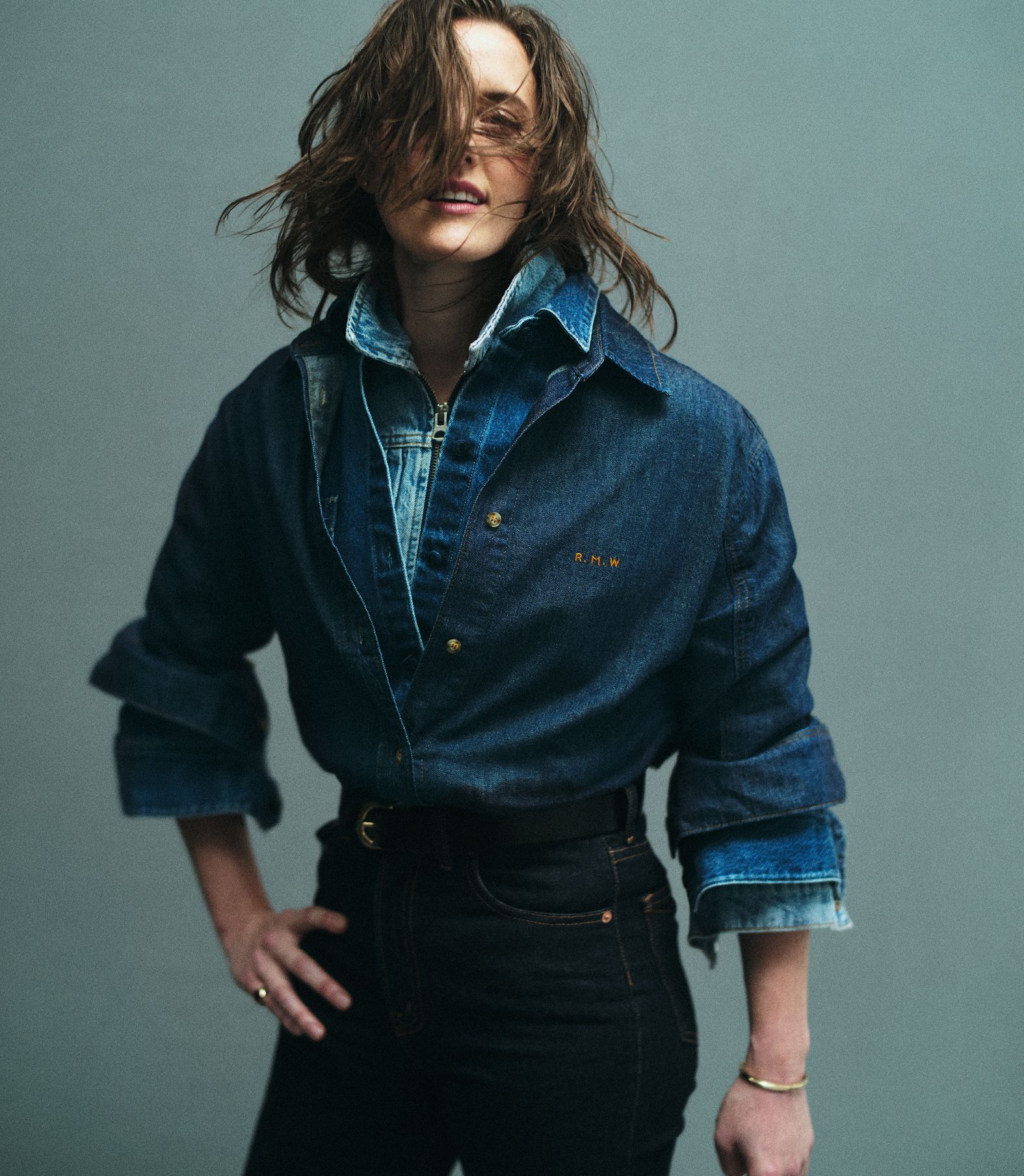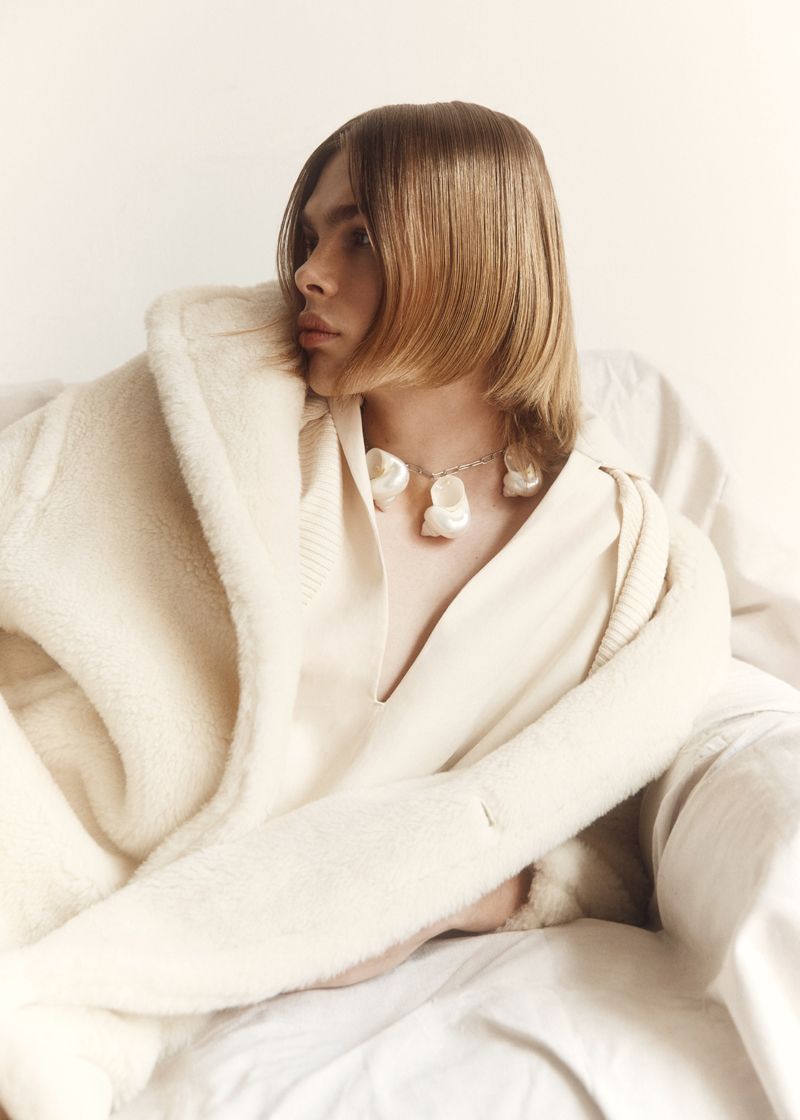
For the love of books
These high-brow texts have become the status symbol for those aspiring to be seen as not just hot, but clever. By Maeve Galea
As the irreverent filmmaker John Waters once said, “If you go home with somebody and they don’t have books, don’t fuck ’em!” And why? Because, rightly or wrongly, we see people who read as thoughtful, intellectual, learned, gorgeously introspective. Perhaps Emma Chamberlain said it best; “Reading makes you hot.” Of course, the Hot Girl didn’t invent reading (neither did the Hot Guy, star of 2015’s favourite Instagram account @hotdudesreading), but if you’re an alien or AI bot who’s only just arrived on planet Earth (welcome!) you’d be forgiven for thinking they did. The optics of reading are amassing cultural cachet like never before. Last year, armed with a flimsy pair of aughty-naughty glasses, fashion’s Itgirls leant into librarian-core. A recent survey conducted by the American Library Association (ALA) found that more than half of gen Z and millennials had visited a public library within the past 12 months, even though 43 per cent of them said they don’t identify as readers.
Celebrities, too, are getting in on the action. Since early last year, designer Marc Jacobs has posted almost weekly Instagrams with his head stuck in books by tormented geniuses such as J.D. Salinger and Truman Capote. He’s titled the series “The Reading Hour”, and rather than using reading to appear more attractive, it seems in some ways Jacobs is trying to do the exact opposite and prove (perhaps subconsciously) that he’s not just a pretty face. It’s a tactic he might’ve borrowed from the new wave of supermodels. Kaia Gerber appears on a lifelong mission to be that bookworm, officially launching her @libraryscience bookclub in February and stepping out in graphic tees brandished with phrases like “reading is sexy”. Kendall Jenner continues to be photographed sitting on yachts with sticky note-stuffed paperback copies of the books a cigarette-smoking Professor of American Literature would direct you to read (is there any greater evidence of depth, intelligence and interiority than a dog-eared and underlined paperback?). These kinds of highbrow texts – often belonging to the eclectic and eye roll-inviting genre of “literary fiction” – have become the ultimate status symbol and gateway drug for those aspiring to be seen as not just hot, but cool and clever too.
How we choose what to read is also changing. There are Instagram accounts (@jaclyncrupi), podcasts (Book Chat), Substacks (Jess White Reads Books), and an extremely passionate corner of TikTok dedicated to book recommendations (#BookTok, have you heard of it?). And yet, reading is still deeply trad. Sure we have e-books and Audible – which means we are less likely to be lugging around a back-breaking 800-page copy of House of Flame and Shadow – but the experience of reading a real book and feeling the thick, smooth pages between your fingers is still largely the same as it was centuries ago. Libraries remain an important “third place” and in the developed world, the number of independent bookshops climbed to a 10-year high in 2022. It makes a mockery of the new-millennium panic, when everyone thought Amazon would kill independent bookstores (see: You’ve Got Mail) or that our tech-damaged attention spans signalled a death knell for the humble tome.
Authors are reaching ROCKSTAR-level recognition.
Why we read
Reading for pure pleasure
Content and community are shaping our relationship with books like never before, but reading, at its core, should be solitary, nonperformative and a respite from the world’s near-constant chatter. Reading is the ultimate – and maybe the last uncorrupted – joy. In our world of multi-tasking and stolen focus, reading remains an activity that requires the entirety of our attention. For many of us, this makes it something difficult to actually do. But when we do, being immersed in a book is a certain kind of euphoria (if time is the ultimate luxury, then reading is surely a close second). It’s the same reason many people still choose to see a movie at the theatre – where fear of retribution from other cinema-goers stops us from checking our phone – despite it already being available to stream from the comforts of our own home. But unlike movies, reading is even more indulgent, even more delicious, because it’s a pleasure – and maybe one of the rare pleasures in that we don’t ever have to feel guilty about it. Society has deemed reading a worthy pursuit. As children, we are encouraged to read, and as adults, the part of our brain that sees books as inherently good (especially compared to TV, video games and other devices) never goes away.
Reading to relate
In 2024, reading is not only an activity we do snuggled up in bed on a Sunday night, but a way to connect and come together with people (especially as many of us are shunning alcohol in record numbers, and looking to find interesting ways to socialise sober). “After a lot of my friends moved away at the end of uni, a few of us used the premise of the book club to make friends and have regular catch-ups,” says Adele, a 25-year-old public servant living in Canberra. “It was a great icebreaker. Now every six weeks or so we get takeaway and just go to someone’s house, have dinner and chat about the book. One time we had a dinner party because we read Stanley Tucci’s Taste and we all made things from the book.” In New York City, book clubs have evolved into reading parties, with bookworms gathering in bars and restaurants to read in silence and then converse during coordinated intervals as a piano softly tinkles in the background. With the cosy environment, both extroverted and introverted literature lovers can relish in comfort, camaraderie and conversation. (Some even find themselves in a meet-cute.)
Reading for romantasy
“We’re in a time of less literary snobbery,” explains Caitlan Cooper-Trent, a literary agent at Curtis Brown Australia. “I think a lot of that is women unashamedly sharing what they think is fun with each other.” According to research from the Publishers Association in the UK, 68 per cent of respondents say that BookTok has inspired them to read a book they would never have considered otherwise. Once thought of as “fluff”, the books most popular with BookTok – often romance, fantasy and the hybrid genre “romantasy” – are now bolstering the book economy, their authors reaching rockstar-level recognition. Sarah J. Maas (author of the A Court of Thorns and Roses series) and Rebecca Yarros – whose novel Iron Flame became Waterstones’ highest-selling pre-order title in a single day, four months ahead of its release last November – are now household names. There’s an entire corner of the internet dedicated to their books, from fan theories to book rankings, compilations of favourite quotes and outfits inspired by books. Fan-fiction, too, is booming and occasionally causing controversy on the app. Late last year, an erotic ebook inspired by Traylor had Swifties up in arms, as they decried the book’s sex scenes as an invasion of privacy akin to the recent creation of AI-generated deep-fake porn using the popstar’s likeness.
The genres to know next
The rise of romantasy – driven by an appetite for escapism – will mean we can expect to see more genre-bending in the future. “It’s shown us that audiences aren’t scared of genre, or genre crossovers, and publishers are listening to that,” explains CooperTrent. In the coming years, expect to see even more crossover fiction, from satirical sci-fi to crime-come-comedy (“Keep your eyes out for debut author Chloe Wilson’s new book Rytual, a fun and pacey capitalism thriller about a cult beauty brand which turns out to be an actual cult,” says Cooper-Trent). In a similar vein, we are also set for a horror revival. “A lot of the things that we are dealing with as a society at the moment are really scary. But people don’t want to read didactic books around it. Horror is a way for readers to be scared, think about scary things, but then have that moment of relief,” she adds. A desire for experimentation and the literary equivalent of eavesdropping will also see a surge in fiction that deals with non-traditional romances and unconventional relationship dynamics (an area we have seen authors like Sally Rooney, Emma Jane Unsworth, Marian Keyes and Dolly Alderton began to pioneer in the past five or so years). “I think there’s so much room for books that look at platonic friendships or relationships that are in the grey area, like non-monogamy, open relationships and even situation-ships,” says Cooper-Trent, highlighting the way in which books give people a view into a world they’re curious about, without forcing them to come face to face with those things in real-life.

PARADE
by Rachel Cusk (out June)
Esoteric writing about the female experience. If you haven’t read Cusk before but love Deborah Levy and Elena Ferrante, this is your sign.
FUNNY STORY
by Emily Henry (out now)
Pick this one up if you want a bubbly Bridget Jones experience. The best part? A happy ending is almost guaranteed.
THE WORK
by Bri Lee (out now)
A book about art that’s actually all about money, this fiction debut is biting, brave and beautifully written.

THANKS FOR HAVING ME
by Emma Darragh (out now)
The first foray into fiction from Nakkiah Lui’s publishing imprint Joan. A tender and darkly funny family drama.
DIRT POOR ISLANDERS
by Winnie Dunn (out now)
This fresh new voice from Western Sydney explores the complicated experience of the Pasifika community in Australia.
36 WAYS OF WRITING A VIETNAMESE POEM
by Nam Le (out now)
A delicate and devastating book-length poem. Nam Le proves poetry can be as approachable and easy to enjoy as fiction.

Ellie Cole's new era
For 16 years, Ellie Cole's life was dictated by the pool. Now, she's taking the reins and already unstoppable. By Courtney Thompson

Go it alone
Solo travel was once associated with backpacking, ‘finding yourself’ or being single (and therefore sad and alone). Not anymore

Fluid form
For power or joy, sensuality or comfort, the best way to get dressed is without boundaries